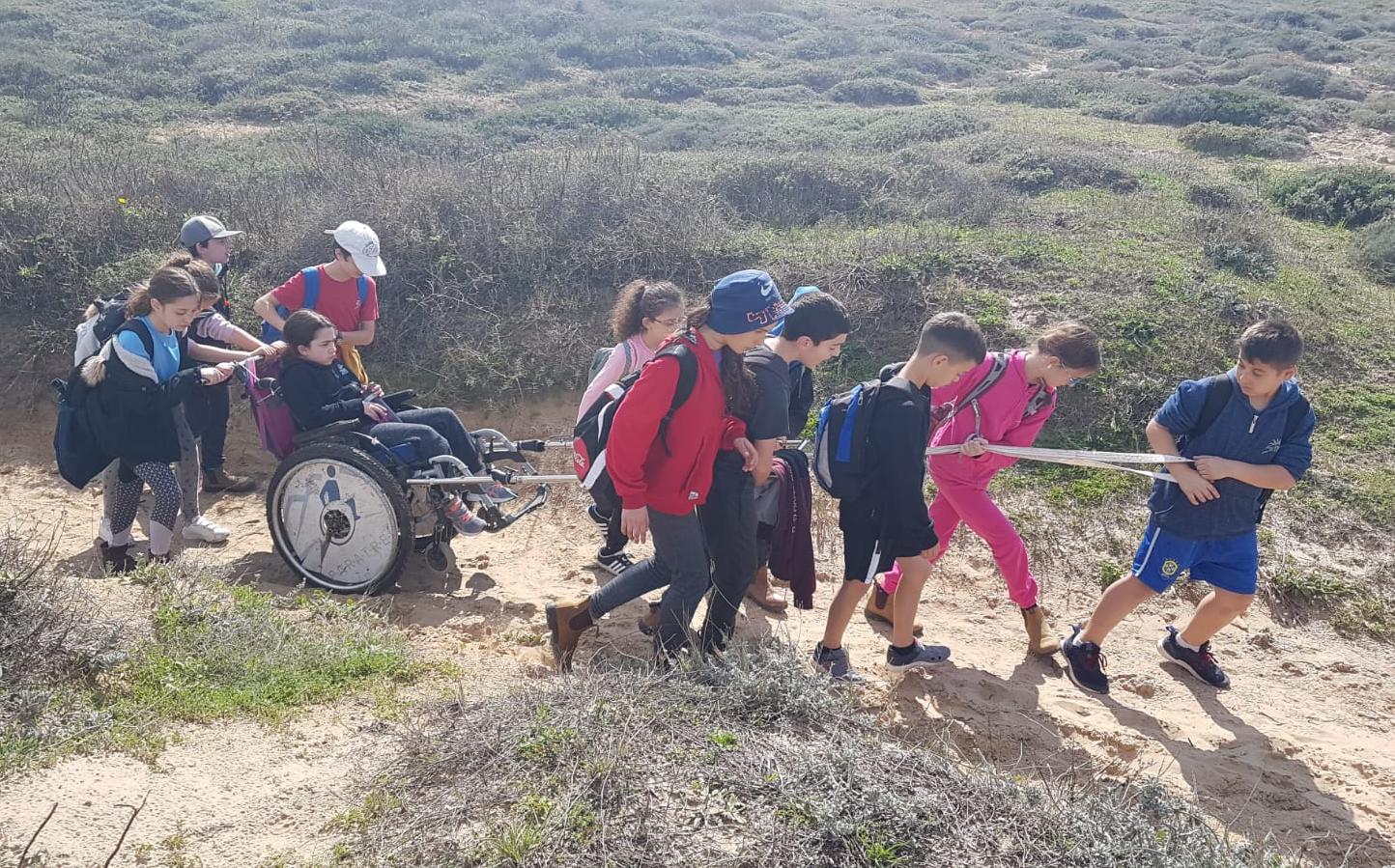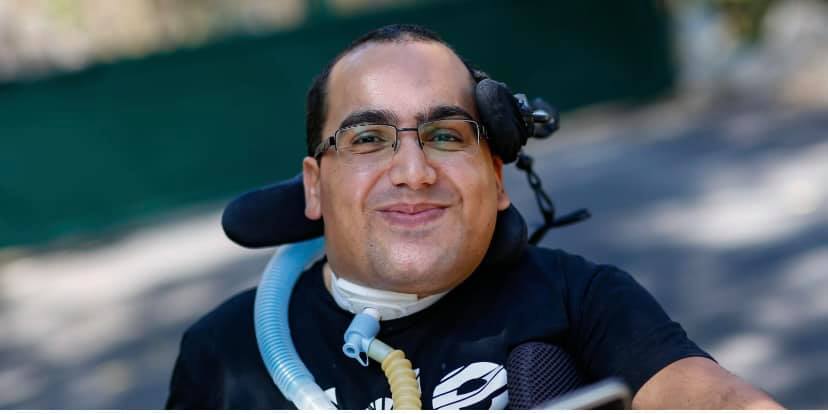FILTER
IMPACT BLOG
Email: customerservice@jnf.org
Feb 12, 2021 By Gaylee Schif Category: Special Needs,
The magic chair

For people with special needs, who cannot walk, using a wheelchair is the only way to get around. Doing activities such as meeting up with friends or going to work can be challenging and we do it naturally without even thinking about it.
Our freedom of movement, the ability to move from place to place, is actually what gives us the ability to fulfill our desires. When it comes to social activities, especially for children, going out into nature, and trips with classmates, are an integral part of the adolescence experience.
From a distance, American Jewry is very much aware that life in Israel is under constant threat due to security and its implication this has on Israeli communities. However, the other side of life in Israel, paradoxically, is characterized by freedom and lack of borders that manages to surprise and excite time and time again. Part of life involves five-year-olds walking on the street alone, seven-year-olds going out to play alone at the playground, 13-year-olds traveling alone for a day trip, or even for ages 14 and older, a trip that includes sleeping at the beach or in nature, alone.
Going out into nature, traveling and camping are a significant part of the lives of Israelis. This is why LOTEM - Making Israel Accessible is engaged in this field and works to enable as many children with special needs as possible to experience the outdoors and nature. Our activities create options for families who have children with special needs, to go out with family and friends, for a picnic, a day trip, or even a joint vacation. Places that until a few years ago were completely blocked for them, have now become accessible and inviting. The same is true for visiting the heritage preservation sites in Israel. They are part of the experience of Israelis and the cultivation of Zionism. Thanks to the accessibility work we have done, children with special needs have been welcomed in these places.
When a child with special needs who is in a typical classroom cannot join a class trip, it breaks our hearts. The sorrow, the rejection, the loneliness - all these feelings rise in them and rightly so! I would not want my children to learn in a class where some children are denied the opportunity to have the full social experience.
This is why the ParaTreker was created. The ParaTreker is a special wheelchair designed to travel on unpaved terrain. This chair is built in such a way that it is safe, comfortable to sit on and comfortable to carry. It is easy to lead, both on dirt roads and stones, up and down slopes and it gives the children sitting in it the right to be part of the group trip.
So far, we have discussed the meaning of social connection on the part of children with special needs. What about the other kids in the class? As parents, we see how many people our children are exposed to with different abilities. The understanding that everyone is unique, valuable and has a contribution to society is important. Without the need for explanations and interpretations, our children understand this on their own and respond in the most correct and friendly way. Whenever we go out with an integrative group for a trip, the kids always lend a hand. They are patient, attentive and caring. With inclusivity, we need to grow the next generation and create a better world.
 I will end with the words of Raz Rutman, our beloved friend and employee at LOTEM: "I wholeheartedly believe that 'being disabled' is a state of mind. Despite my situation and with it, I live, do and act. I graduated from high school, volunteered, did my national service, completed a certified guiding course and here I am an instructor and employed.
I will end with the words of Raz Rutman, our beloved friend and employee at LOTEM: "I wholeheartedly believe that 'being disabled' is a state of mind. Despite my situation and with it, I live, do and act. I graduated from high school, volunteered, did my national service, completed a certified guiding course and here I am an instructor and employed.
Gaylee Schif is the JNF liaison for LOTEM - Making Israel Accessible, which empowers children and adults with special needs across Israel through educational activities in nature and the outdoors. Born and raised in Israel, she was inspired to pursue work in disability inclusion by being the mother of a child who struggled with disabilities early in life. She has a BA in political science and journalism and a master’s degree in internal auditing, and has extensive experience as a local newspaper editor as well as an auditor of government authorities and private companies.
For more information about our work with Disabilities and Special Needs, please contact Yossi Kahana.